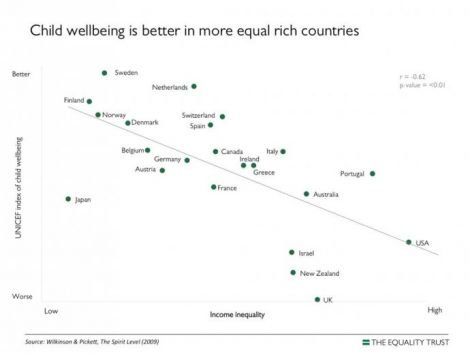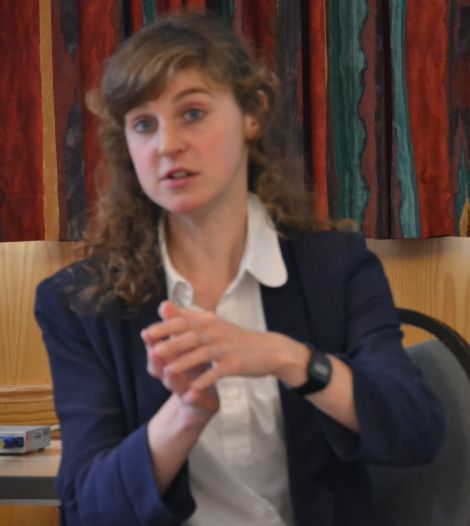News / Huge inequality
SOMEONE earning the minimum wage would have to work for 375 years to earn the annual salary of a FTSE100 company’s chief executive.
That stark statistic brought the UK’s high level of inequality into sharp focus earlier this week when a senior researcher for the Equality Trust gave a presentation in Lerwick.
Maddy Power looked at the highly regarded 2009 book ‘The Spirit Level’, written by Kate Pickett and Richard Wilkinson, as she explained in Islesburgh’s Room 16 on Tuesday the debilitating effects income inequality can have on society.
It was the second outing of the day for Power, who had earlier given a seminar to the Shetland Partnership Board.
The researcher opened the public evening event by revealing that the UK has the seventh most unequal split of incomes in the developed world; countries such as Japan, Finland, Norway and Sweden are among the most equal.
Power added that there is usually a correlation between high income inequality in rich countries and, for example, lower levels of child wellbeing, social mobility and life expectancy, amongst other knock-on effects.
It might have been strong stuff to stomach post-tea time on a mild Tuesday night, but it highlighted perhaps the misconceptions some may have of the UK’s social and health status.
Indeed, with the rise of income equality generally comes physical and mental issues such as stress and social alienation. There is a “huge stigma against poverty in the west,” Power said.
So what contributes to inequality? The researcher added that factors such as family, childhood, technology’s impact on the labour market and political institutions can all have an impact.
The lecture itself may have been short but sweet, but the questions afterwards gave plenty food for thought when it came to Shetland’s position in relation to the wider UK landscape.
Become a supporter of Shetland News
One member of the audience questioned if the current oil and gas boom in the isles has been detrimental to Shetland’s own level of inequality, with the bulging private rental price in Lerwick an indicator of the industry’s effect.
Whilst those in their early 20s may be the most likely to fall foul of rising housing costs, it was also mooted in the audience that Shetland’s children are, perhaps surprisingly, specifically reeling from the effects of inequality. Those who are disabled, it was suggested, will also fall into the trap.
With the independence referendum only a couple of weeks away, it was inevitable that Scottish self-determination reared its head as the floor opened.
Will an independent Scotland have a more equal society than the UK? Statistically yes, thought Power, with the removal of big bucks London – which skews the UK’s overall figures hugely – but any meaningful impact would depend on policy shifts after independence.
Power had earlier stated in her informative lecture that self-comparison – or keeping up with the Joneses, as an audience member aptly put it – is “core to the whole idea” of income inequality leading to effects like stress, low self-esteem and illness.
As a result, with Shetland a small and narrow community, the audience will have no doubt left Islesburgh pondering the levels of inequality on their very doorstep.
Chris Cope
Become a supporter of Shetland News
Shetland News is asking its many readers to consider start paying for their dose of the latest local news delivered straight to their PC, tablet or mobile phone.
Journalism comes at a price and because that price is not being paid in today’s rapidly changing media world, most publishers - national and local - struggle financially despite very healthy audience figures.
Most online publishers have started charging for access to their websites, others have chosen a different route. Shetland News currently has over 600 supporters who are all making small voluntary financial contributions. All funds go towards covering our cost and improving the service further.
Your contribution will ensure Shetland News can: -
- Bring you the headlines as they happen;
- Stay editorially independent;
- Give a voice to the community;
- Grow site traffic further;
- Research and publish more in-depth news, including more Shetland Lives features.
If you appreciate what we do and feel strongly about impartial local journalism, then please become a supporter of Shetland News by either making a single payment or monthly subscription.
Support us from as little as £3 per month – it only takes a minute to sign up. Thank you.






















































